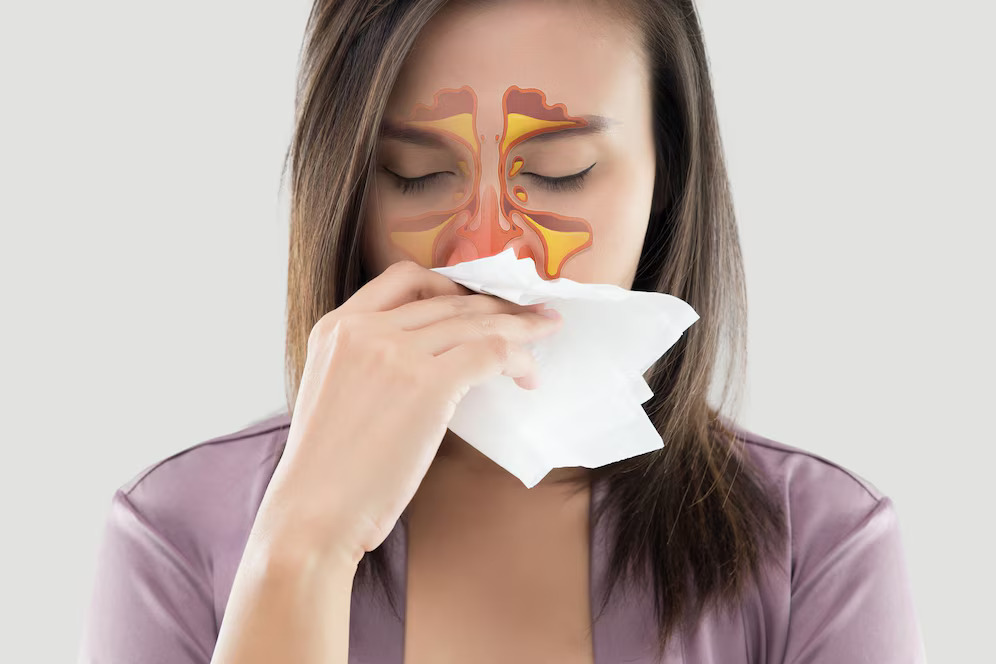Acute sinusitis is a common condition that occurs when the lining of your sinuses becomes inflamed. This inflammation often blocks the sinus passages, leading to a buildup of mucus, causing pain, pressure, and congestion. While many cases of acute sinusitis resolve on their own, several treatments can help alleviate symptoms and speed up recovery.
Understanding Acute Sinusitis
Before diving into treatments, it’s essential to understand what acute sinusitis is. Most cases are triggered by the common cold or flu (viral infections), but bacterial infections, allergies, and fungal infections can also cause it. Symptoms typically last for less than four weeks.
Home Remedies for Sinus Relief
Many people find relief from acute sinusitis symptoms using simple home remedies:
- Nasal Saline Rinses: Rinsing your nasal passages with a saline solution (using a neti pot or squeeze bottle) helps to clear congestion, reduce inflammation, and wash away irritants.
- Steam Inhalation: Breathing in steam from a hot shower or a bowl of hot water can help to loosen mucus and relieve sinus pressure.
- Warm Compresses: Applying warm compresses to your face can help to alleviate sinus pain and pressure.
- Hydration: Drinking plenty of fluids, especially water, helps to thin mucus and promote drainage.
- Rest: Getting enough rest allows your body to focus on healing.
- Elevate your head: When sleeping, prop your head up with extra pillows. This helps reduce sinus pressure and congestion.
Over-the-Counter (OTC) Medications
OTC medications can also provide relief from acute sinusitis symptoms:
- Pain Relievers: Medications like acetaminophen (Tylenol), ibuprofen (Advil, Motrin), or naproxen (Aleve) can help to reduce sinus pain and headaches.
- Decongestants: Nasal sprays (like oxymetazoline) or oral decongestants (like pseudoephedrine) can help to relieve nasal congestion. *Important Note:* Nasal decongestant sprays should only be used for a short period (usually 3 days) to avoid rebound congestion.
- Saline Nasal Sprays: These sprays can help to moisturize nasal passages and thin mucus.
When to See a Doctor
While most cases of acute sinusitis improve with home remedies and OTC medications, it’s important to see a doctor if:
- Your symptoms last longer than 10 days.
- You have severe symptoms, such as intense facial pain, high fever, or severe headache.
- Your symptoms worsen after initially improving.
- You experience changes in vision.
- You have a weakened immune system.
Prescription Treatments
Your doctor may prescribe the following treatments for more severe or persistent cases of acute sinusitis:
- Antibiotics: If your sinusitis is caused by a bacterial infection, your doctor may prescribe antibiotics. However, antibiotics are ineffective against viral sinusitis, which is the most common cause.
- Corticosteroids: Nasal or oral corticosteroids can help to reduce inflammation in the sinuses, especially if allergies or nasal polyps are contributing factors.
- Antifungal Medications: If a fungal infection is causing your sinusitis, your doctor will prescribe antifungal medications.
Other Treatments
- Nasal Endoscopy: In some cases, a doctor may use a nasal endoscope (a thin, flexible tube with a camera) to examine the sinuses and identify any structural problems or blockages.
- Surgery: In rare cases of chronic sinusitis or when other treatments fail, surgery may be necessary to open up the sinus passages.
Conclusion
Acute sinusitis can be a painful and uncomfortable condition. Fortunately, many effective treatments are available to help you find relief. Most cases resolve with home remedies and OTC medications. However, it’s crucial to seek medical attention if your symptoms are severe, persistent, or worsening. By understanding the causes of acute sinusitis and the available treatment options, you can work with your healthcare provider to find the best approach for your individual needs and get back to breathing easy.
Frequently Asked Questions (FAQs)
1. What is the main cause of acute sinusitis?
The main cause of acute sinusitis is usually a viral infection, such as the common cold or flu.
2. How long does acute sinusitis typically last?
Acute sinusitis typically lasts for less than four weeks.
3. Are antibiotics always necessary for acute sinusitis?
No, antibiotics are not always necessary. They are only effective for bacterial infections, and most cases of acute sinusitis are caused by viruses.
4. What can I do to relieve sinus pressure at home?
You can relieve sinus pressure at home by using nasal saline rinses, inhaling steam, applying warm compresses, and staying hydrated.
5. When should I see a doctor for a sinus infection?
You should see a doctor if your symptoms last longer than 10 days, are severe, worsen after initially improving, or if you experience changes in vision.
For more information about acute sinusitis and our treatment options, please visit our website at https://scclittleelm.com/. If you are experiencing persistent or severe sinus problems, please call us at (469) 200-5974 to schedule an appointment. Our team of specialists is here to provide you with expert diagnosis, personalized treatment, and compassionate care.

